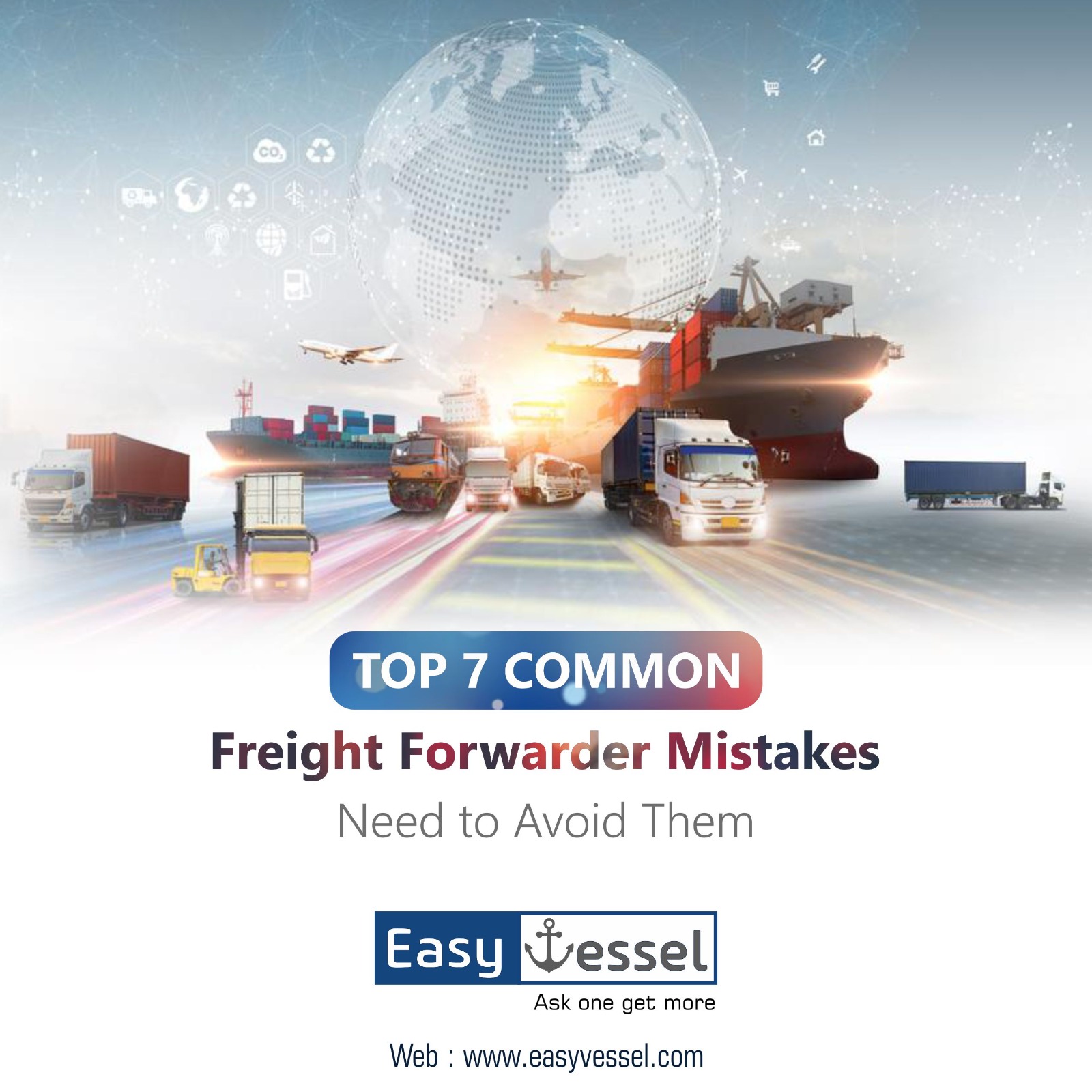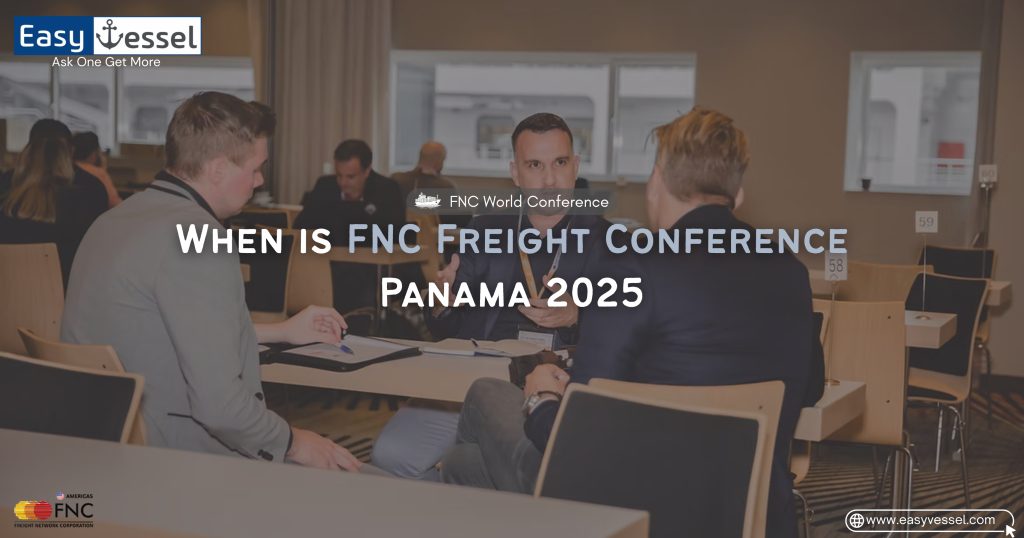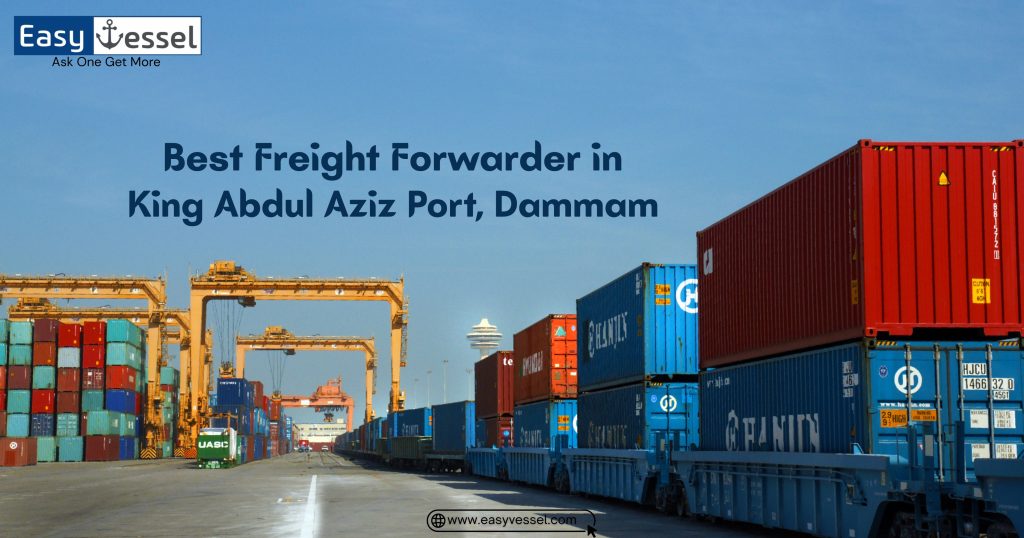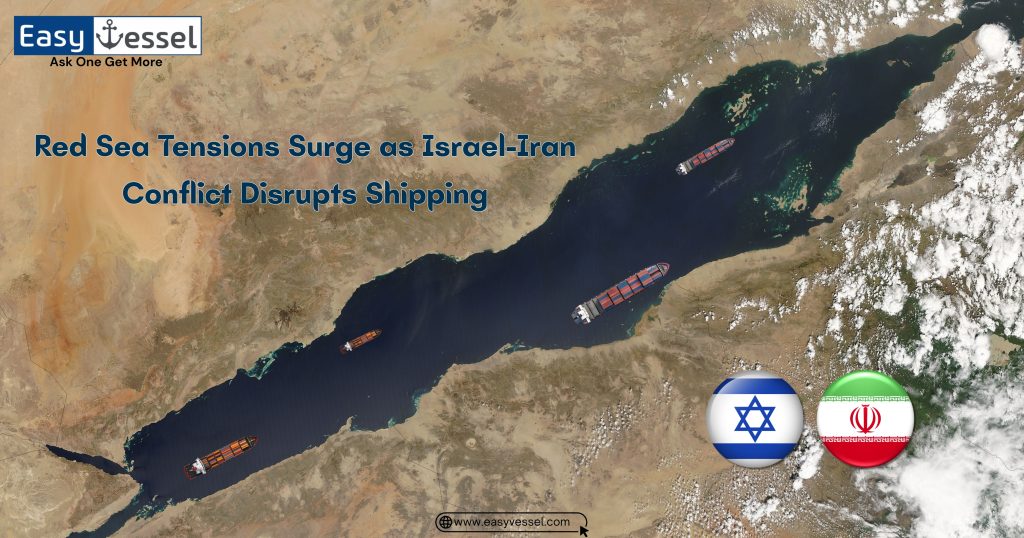Introduction:
- The demand for fast and convenient deliveries has grown due to changes in supply chains and customer expectations to avoid freight forwarder mistakes.
- Online shopping has become popular, especially during the pandemic.
- As a forward-thinking company focused on customer satisfaction, it’s important to know common shipping mistakes to ensure smooth deliveries.
- Understanding these mistakes helps avoid issues and provides a positive customer experience.
Here are top 7 freight forwarder mistakes should avoid to ensure smooth operations and maximize customer satisfaction:
- Inadequate Cargo Packaging
- Lack of Carrier Selection Evaluation
- Inadequate Knowledge of Customs Regulations
- Poor Supply Chain Visibility
- Inadequate Contingency Planning
- Ditching insurance for cost-cutting
- Listing an Incorrect Address
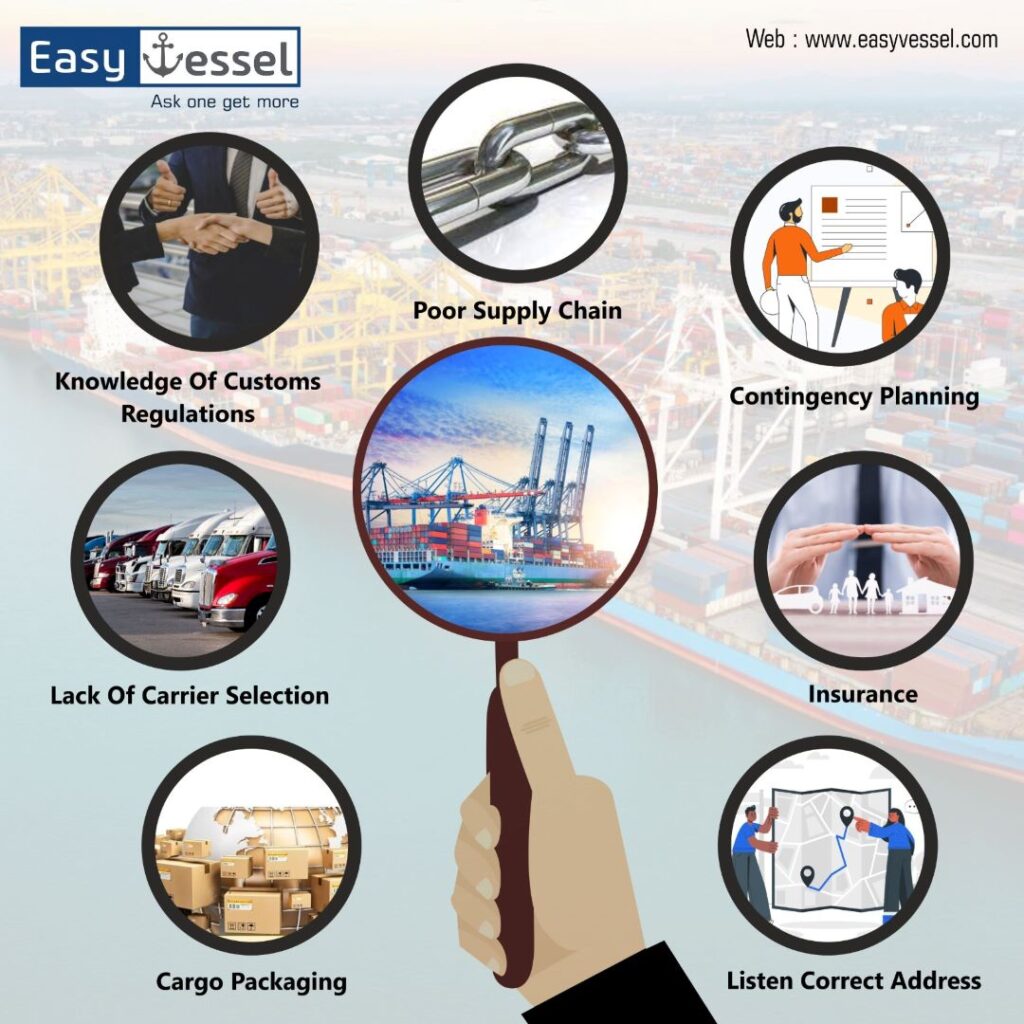
Inadequate Cargo Packaging:
- Improper cargo packaging can lead to damage during transportation.
- Freight forwarders should ensure that cargo is packed securely, using appropriate materials and techniques to protect it from vibrations, impacts, and adverse weather conditions.
- This helps prevent costly damages and ensures customer satisfaction.
Lack of Carrier Selection Evaluation:
- Choosing the right carrier is crucial for successful freight forwarding.
- Freight forwarders should carefully evaluate carriers based on factors like reliability, track record, coverage, transit times, and pricing.
- Failing to select the right carrier can result in service disruptions, delivery delays, and customer dissatisfaction.
Inadequate Knowledge of Customs Regulations:
- Ignorance of customs regulations can lead to delays in clearance and potential penalties.
- Freight forwarders should stay updated on the latest customs requirements and regulations in different countries.
- This includes understanding documentation, import/export restrictions, and proper handling of hazardous materials.
Poor Supply Chain Visibility:
- Lack of real-time visibility and tracking throughout the supply chain can lead to inefficiencies and customer frustration.
- Freight forwarders should invest in technology solutions that provide end-to-end visibility, allowing them and their customers to track shipments, monitor progress, and address any issues promptly.
Inadequate Contingency Planning:
- Freight forwarding involves various unpredictable factors that can disrupt operations, such as extreme weather events, labor strikes, or port congestion.
- Freight forwarders should have contingency plans in place to deal with such situations effectively.
- This includes having alternative routes, backup carriers, and communication protocols to minimize disruptions and maintain customer satisfaction.
Ditching insurance for cost-cutting:
- Some freight forwarders make the mistake of neglecting insurance coverage to save money.
- They underestimate the potential risks such as accidents, theft, or natural disasters that can severely impact their shipments.
- They fail to recognize the catastrophic consequences of losing or damaging valuable merchandise worth thousands of dollars due to these unforeseen circumstances.
- It is crucial to understand that having insurance is especially important when dealing with high-value cargo.
Listing an Incorrect Address:
- One common mistake to avoid when working with freight forwarders is providing an incorrect address.
- It is crucial to provide the accurate and complete address for both the pickup and delivery locations.
- Failing to do so can lead to delivery delays, misrouted shipments, and additional costs.
- Double-checking the address details and ensuring they are correct can help prevent unnecessary complications and ensure smooth transportation of goods.
By avoiding these freight forwarder mistakes and following the recommended actions, you can optimize your relationship with your freight forwarder and achieve a smooth and efficient shipping process for your business.
Conclusion
Avoiding these common freight forwarder mistakes when working with freight forwarders can lead to streamlined shipping operations, improved customer satisfaction, and overall business success.
By maintaining clear communication, defining expectations, providing accurate information, managing documentation effectively, and evaluating performance, you can optimize your relationship with freight forwarders and ensure smooth logistics operations.
EasyVessel connects you with reliable service providers for shipping needs.
Sign up for access to trusted providers, simplifying the process and ensuring peace of mind. Save time and work with professionals through EasyVessel.
References:
Freight forwarding: managing risk [1].
FAQ’s
As businesses expand into new markets, freight forwarders face the challenge of navigating complex supply chains that involve multiple countries. This complexity arises from the need to coordinate shipments across various jurisdictions, each with its own regulations, customs procedures, and logistical considerations.
Increasing complexity of global supply chains.
Need to ship goods through multiple countries.
Difficulty in tracking shipments.
Ensuring timely delivery of goods.
Here are 9 factors influencing freight forwarding:
Market demand and industry trends.
Global economic conditions.
Trade policies and regulations.
Transportation infrastructure and capacity.
Technological advancements.
Supplier and customer relationships.
Fuel prices and energy costs.
Environmental sustainability initiatives.
Security and risk management considerations.
To avoid freight forwarder mistakes, you should:
Double-check all address information before submitting it to your freight forwarder.
Use the correct packaging materials and methods for your shipment.
Make sure all BOL information is accurate, including the weight, freight class, and value of the shipment.
Purchase freight insurance to protect your shipment from damage or loss.
Palletize your shipment if possible to save on shipping costs and prevent damage.
Compare quotes from multiple freight forwarders before choosing one.
To find a good freight forwarder, you should:
Get recommendations from friends, family, or business associates.
Do online research.
Ask for quotes from multiple freight forwarders.
Compare the services and prices of different freight forwarders.
Expectations from a Freight Forwarder:
Handling of freight across multiple carriers and transportation modes.
Arrangement of carriage from origin to destination, including contracting with carriers.
Management of necessary paperwork and documentation processing.
